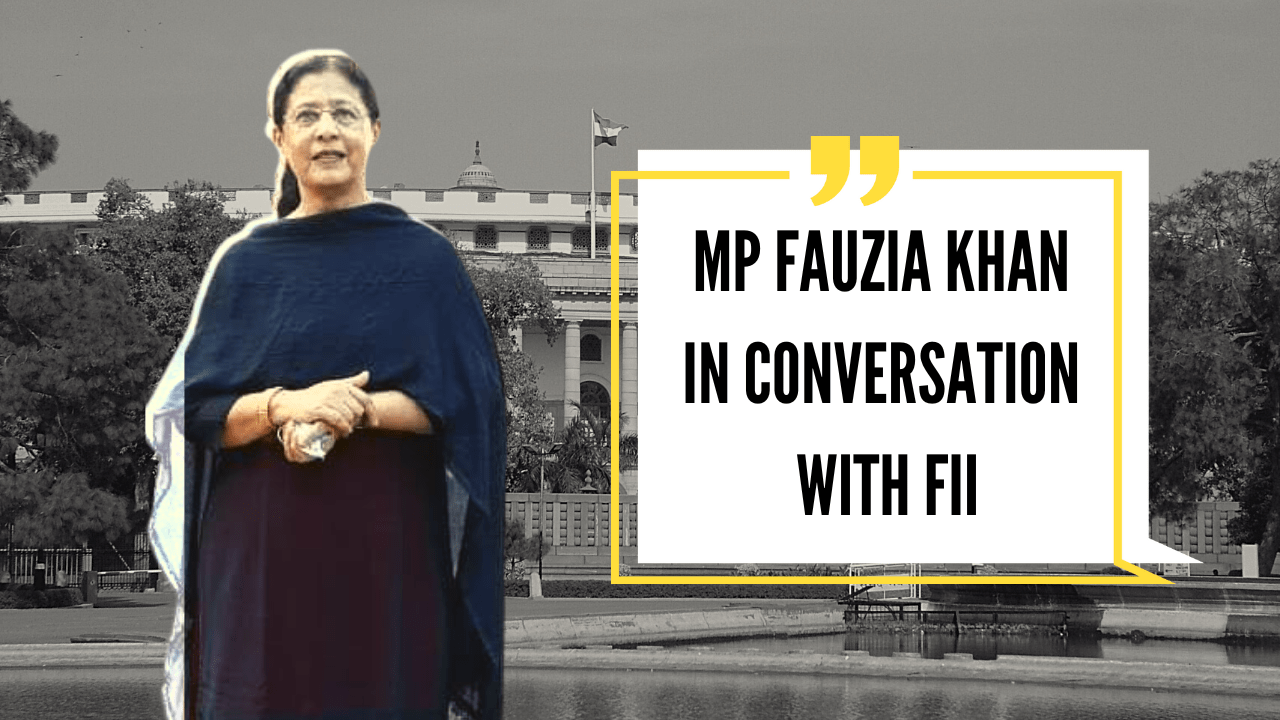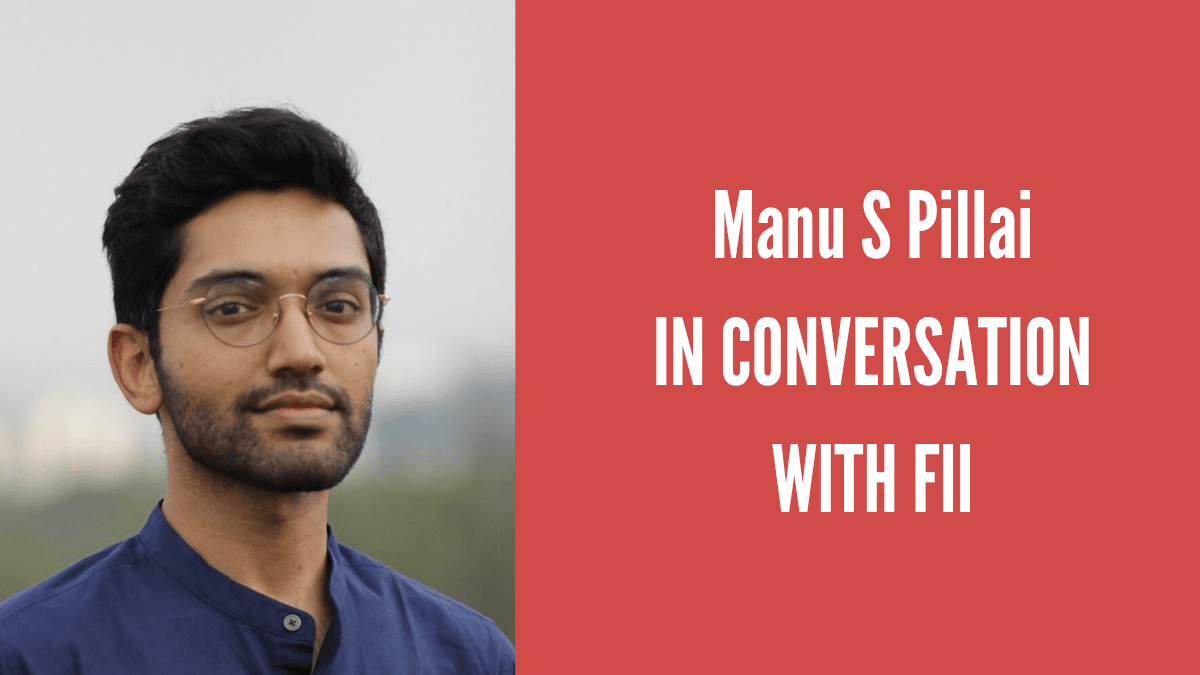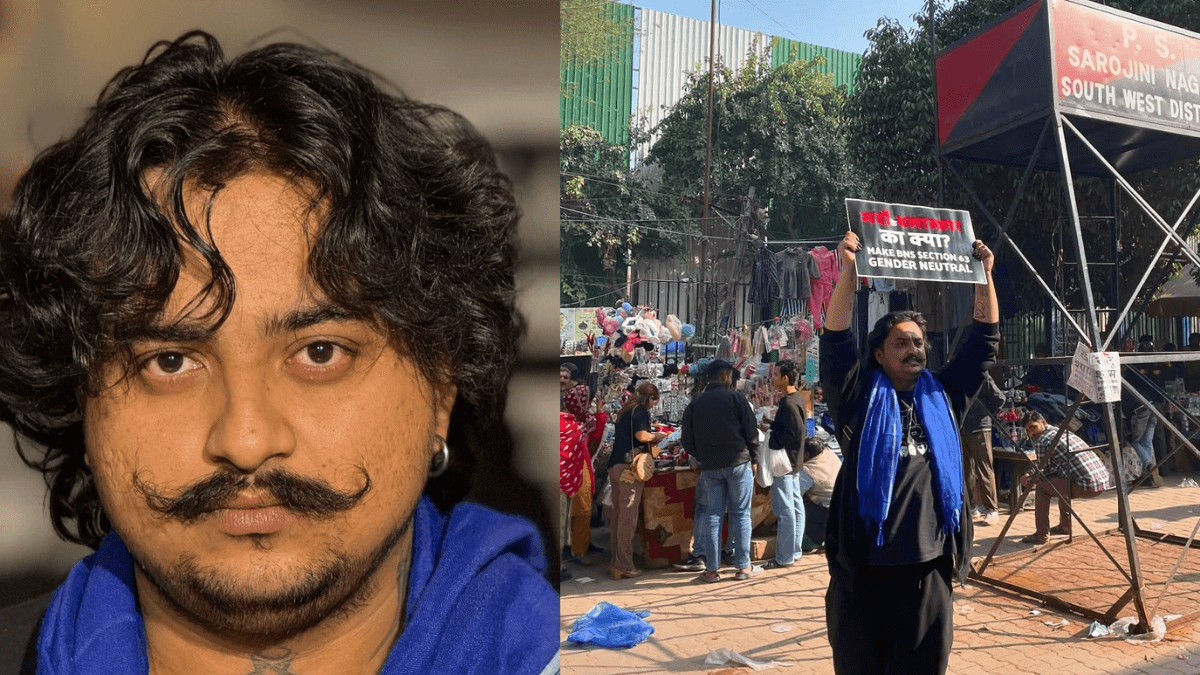Dr Fauzia Khan is a prominent politician and an educationist who is also currently a Rajya Sabha member from Maharashtra. She is the National President of the Nationalist Mahila Congress—the Women’s Wing of the Nationalist Congress Party (NCP). She is a former State Minister of the Maharashtra government and served as a member of the Legislative Council, Maharashtra’s upper house, twice.
Dr Fauzia Khan is also the President of the Federation of All Maharashtra Minority Education Organisation (FAME) and the Director of a number of educational institutions in Parbhani. She was also the state’s first Muslim woman minister in the Maharashtra government.
In conversation with FII, Dr Fauzia Khan underscores challenges affecting minorities and women in the country today. She also voices the need for the Women’s Reservation Bill, emphasises the importance of women participating actively in politics, and reflects on her political career.
FII: Were you always interested in politics and fascinated by this field? Were you politically active and aware when you were young?
Dr Fauzia Khan: No. As a child, I didn’t know anything till I got into politics, I didn’t know what politics is. And I didn’t have any such ambition. But as a child, I did have leadership qualities as I reflect upon them now. Because I used to lead teams of children in play activities. So I think I had it in me, but I didn’t realise it at that time.
FII: You were an educationist, before joining politics. So what made you join politics? Was the goal the same in both fields and if it was, what was the goal?
Dr Fauzia Khan: See, for me, it was all destiny all the time as I take it personally. But if you see it from a political angle, I feel this opportunity came to me through our leader Sharad Pawarji, who looks around for potential women who can take up these roles. And also I think I’m one of the beneficiaries of that outlook. I worked in education, and even that came in, as life rolls on, because I was married in a place where there were very few good schools. And then when it came up to my children being sent to school, that time, I realised that there were no schools where I would like to send my children. So then my husband advised me that “Why don’t you start a school of your own, so that you can maintain standards, and the children can get educated here along with other children.”
So that’s how I began my education career. And I started a school which took off well, and I earned a name or reputation through that school in the small town of Parbhani. And that’s how people started knowing me.
And one day, the NCP district president from here, approached me for the municipal councils. There is a reservation for women. So (he asked) would you like to contest this election because this is a direct election? And it’s a roaster for women. So at that point in time, I was very reluctant. I didn’t want to get into politics. Till that time, I had believed that politics was not a sphere for good people. And that’s why I refused.
I didn’t want to do it, because I didn’t consider it a clean field. But my family, wanted me to give it a try. Especially my father-in-law, who was a lawyer. And he was a little into politics at that time. So he said, “Why don’t you try because it’s such a big opportunity.”
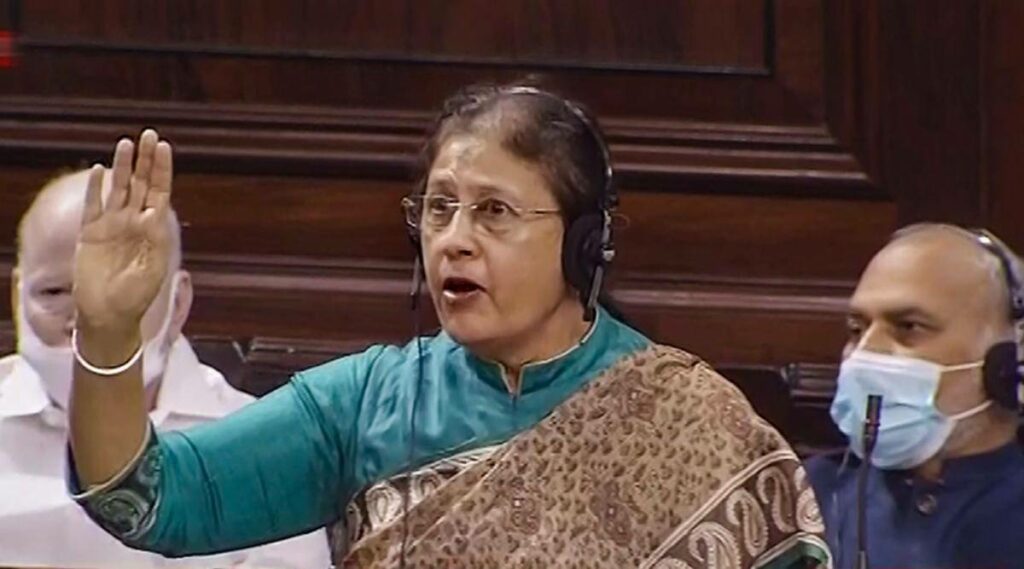
And meanwhile, my husband and my father-in-law kept on trying to persuade me. While this roster for women was cancelled, there was a roster for general elections like the general category. So in spite of that, then I decided to contest that election. And finally, my mind was made up because what made me convinced, was my husband said that you are doing some work in education. But if you go to a broader field, you will be able to do much wider work through that. So I thought this is a good opportunity that we can do constructive work also through this.
So when I contested this election, I got the popularity to the number one level, but then I still lost by a very narrow margin. Because at that time, that communal card was played. And finally, I lost that election with a very, very narrow margin. And my party chief that is honourable Sharad Pawar ji noticed the way we campaigned and the way I got the party, (it was at the fourth or fifth number), to number 2. So then my party approached me, and Honourable Sharad Pawarji, himself approached me. And he offered the position in the Legislative Council to me and said that “We want to take you there if you’re interested.”
And that’s how directly I came to the Legislative Council. Then for 6 years, I was a member of the legislative council. I performed well there and I got the President’s Award for it. Then again, one more time, he made me a governor’s nominee and this time he gave me a ministry in the Maharashtra cabinet, as a Minister of State. And then the term after that term was completed.
Our government itself lost, and the BJP government took over so there was a 5-year gap but even during that time, Sharad Pawar ji made me the national president for NCP women. And, then later on, I was sent to the Rajya Sabha. So that’s my political journey.
FII: How has politics changed over the years, like, as you mentioned that it was a bit communal back then when you were contesting the elections, and then you are today a Rajya Sabha member? And what was it like for you to be a Muslim minister in the Maharashtra cabinet?
Dr Fauzia Khan: As far as being a Muslim minister in the cabinet, I didn’t find any kind of bias. I was always appreciated for all my input.
But I feel over this period the communal feeling has grown not within the party but within the country as a whole. And people are looking at each other with suspicion, it’s not a good environment to be even living in this nation. Because here, people have become insecure, particularly the minorities and the weaker sections. And there’s a kind of majoritarianism which is being propagated. And that has instilled a lot of insecurity in the minds of the people, especially in the current times, these naming of cities and this and that, it’s injuring sentiments of the minorities and that’s very painful.
Dr Fauzia Khan
FII: There is a lack of representation of Muslims and Dalits and other minorities in the Indian political sphere, because of which to a great degree, issues related to minorities remain somewhat unaddressed. So would you say lack of representation is leading to unaddressed issues related to minorities?
Dr Fauzia Khan: There is a lack of representation, which is leading to a lack of welfare schemes, and a lack of the will for welfare, but at the same time, even this seems to be like a big hope to achieve representation.
Right now, there seems to be a conscious effort even to stop the welfare schemes that were introduced by the earlier government, like scholarships have been, scholarships for classes 1 to 8, have been stopped, then the people who were sent for Hajj, that has been stopped. There are so many things, which slowly and steadily are being curtailed. And the present government seems to be bent upon taking away the benefits.
Dr Fauzia Khan
So, I am there but we are in such a small minority, that what we speak hardly matters because today, the BJP has got the numbers. And whatever we say only comes on record, but nothing comes out of it. That’s my feeling.
FII: So, talking about representation, got me thinking, about the women’s reservation bill, which has been pending for so many years. So, the fact that “India ranks 20th from the bottom in terms of representation of women in parliament“, what does that mean to you and women in general?
Dr Fauzia Khan: So the Women’s Reservation Bill has been lingering in the parliament now for almost a century. But this time, the women of India really have hope, because if the Modi government possesses the numbers, nothing can stop the Modi government. They believe that women should be empowered, but the actual action is not there. And the real action would be the bill to be brought into parliament and which can be easily passed because they have the numbers. So I don’t know why it’s not done. Because earlier, we had so many parties who were conflicting over things with each other, but today, that’s not the situation. So whatever is being said, and whatever is being acted upon, there is a big gap between that.
Also Read: Muslim Women In Indian Politics: Reservation Proposed by the AIMMM
FII: What would be the reason that we are still dragging our feet on the Women’s Reservation Bill and still have failed to make it a reality even after more than 70 years the bill is still pending.
Dr Fauzia Khan: Today, the Modi government is patting its back that we have got so many women in parliament, but it’s such a shameful thing because even today, we only have come up to 14 per cent in the parliament. When the country became independent in 1947, women’s representation in parliament was 5 per cent. Today it’s 14 per cent. So we have grown only 9 per cent in 75 years. Where in some countries in the world this quota has made women come up to 60 per cent representation and countries like Rwanda, Cuba and other Latin American countries. Even in Dubai, in the UAE, we have 50 per cent representation for women.
So India is far far behind and still patting its back that we are doing so much for women. So it’s a big paradox. And I think it’s time we have been raising this in Parliament, time and again, the entire opposition keeps unanimously saying that bring the women’s reservation bill, but it’s not being brought.
FII: Even if women do come from political backgrounds, it’s still a difficult decision for them to join politics. So what would you think about women who do not at all come from political backgrounds, and want to join politics?
Dr Fauzia Khan: If you look across the canvas of women who are in the Lok Sabha or the assemblies, you will see that most of the women are from political backgrounds or families who have a political background. So it’s very difficult for a woman who is not from a political background to get elected. It’s almost next to impossible. I think just there must be one or two examples, but then this reservation only can be a solution to it, because the reservation in the local self-government has shown that women, the situation of women can improve.
And only a day before yesterday I was in a district called Amravati in Maharashtra. And I went to 5 or 6 places and different Talukas where we felicitated women sarpanches. And when I was felicitating, these women sarpanches from the Gram Panchayat, I, you know, observed that most of them almost all of them were educated women who looked you know, fully competent to do the work on their own.
Till now, men used to perform the work for the women at the Gram Panchayat level or the local self-bodies. But today, more competent women are coming in. And the men’s role in this is reducing. So a big revolution is taking place at the local self-body level. And women are being given an opportunity to work independently and highly qualified women are coming up as sarpanchs, Panchayat samiti members and Zilla parishad members. So this revolution can even take place in assemblies and the parliament if women are given this opportunity, and reservation is given to them.
Dr Fauzia KHan
FII: Reflecting on your previous answer, how important it is for women to get involved in politics actively?
Dr Fauzia Khan: It would definitely improve politics. It would bring about a big change I feel because if we minutely study the questions raised by women particularly, they deal with human development issues. Most questions that women raise deal with human development issues like health and education, which is the real parameter for the development of any nation.
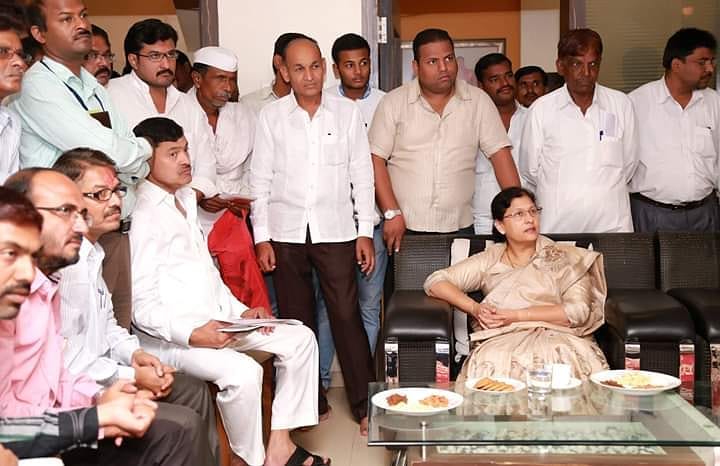
Like concerns about malnutrition, concerns about women’s health concerns about the quality of education, women tend to focus on these issues while men tend to focus more on infrastructural issues. So most questions are raised by men, and most debates raised by men are related to infrastructure. And if development has to be wholesome, both human development and infrastructural development are necessary for any country. So I think 50 per cent of women should be there in politics, and 50 per cent in Human Development accordingly, or it will take place according to my thinking.
FII: Most of the time, what happens that women are restricted to certain portfolios? For example, Women and Child Development. What do you say about that?
Dr Fuazia Khan: It does happen. But that change can come on later. I feel right now we need to focus more on increasing the representation. Because slowly even this, change is coming in today we have a Finance Minister who’s a woman, and she’s doing that so competently. So I think more examples will come in and they should come in. Women should get better portfolios.
Also Read: Why Are Women Under-Represented In Politics?
FII: What would you say to people in general, and women in particular, who think that politics is not part of our life and are averse to it?
Dr Fauzia Khan: I would say even initially, I had believed in such thinking, but my experience has shown me that, yes, we can make a big difference. And we need to be in politics because politics is an integral part of our everyday life. And unless we are involved in policymaking, we cannot bring about a transition in our own lives. So it impacts us fully. And that is why we should be politically aware. We should be financially and legally aware as well. Because here women tend to be very weak.
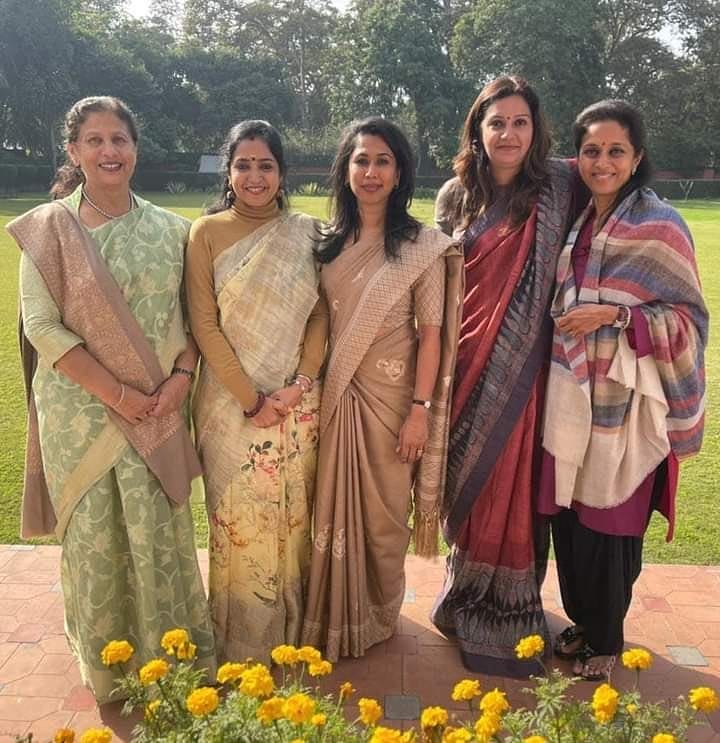
FII: What is the cause of the rising violence towards minorities, which has driven them to the periphery over time, and how can this be addressed?
Dr Fauzia Khan: Unfortunately, politics has become filthy. And in order to accumulate the votes of certain communities, this hate and this kind of agenda have been propagated purposely. And because of that violence is taking place. And obviously, in any country, the weak and the deprived are going to be at the victimised end.
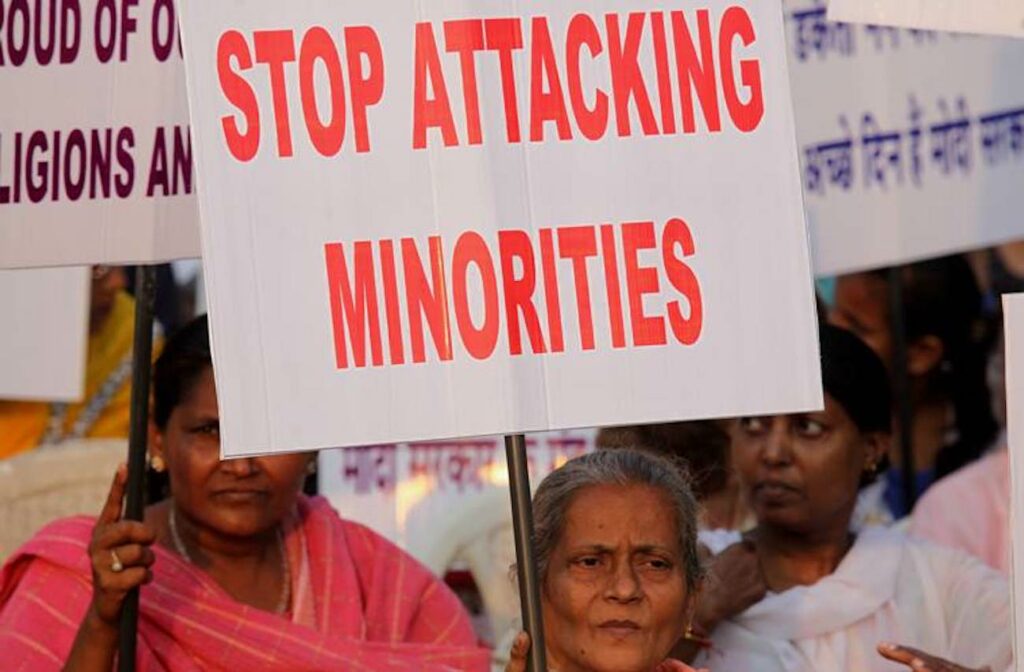
And that is why there is a great need for the public to understand that this is just a game by politicians, to benefit themselves. And that is why unless we stop politics, concerning communities, and it just becomes about human beings in general, things will not change. So that’s how now as a public, we need to start working on it. And the public has to become aware.
FII thanks Dr Fauzia Khan for her time, patience, and words. You may follow her on Twitter and Instagram.
The interview has been paraphrased and condensed for clarity, at the interviewer’s discretion.
About the author(s)
Shahinda is a multimedia journalist with an experience of more than five years. She has an interest in covering politics, gender, conflict, and gender-based violence/crime. In addition, she has experience in reporting, photography and documentary filmmaking. She has done her Masters in Mass Communication from AJK MCRC Jamia Millia Islamia, New Delhi.
